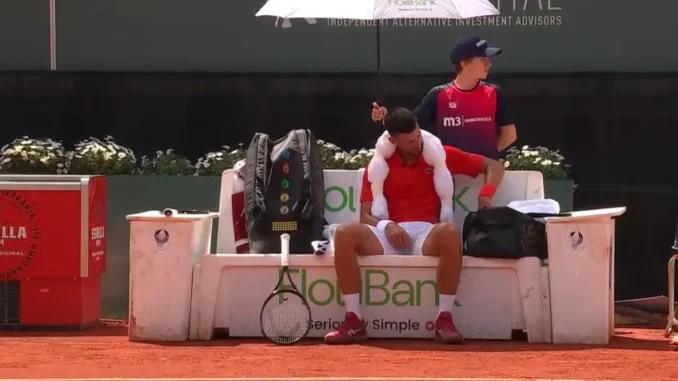
As the tennis world gears up for the French Open, Novak Djokovic’s unexpected decision to enter the Geneva Open at the eleventh hour has sparked intense debate. The 37-year-old Serbian legend, chasing a record-extending 25th Grand Slam title, has faced a challenging 2025 season, marked by a winless clay court campaign and a three-match losing streak. Yet, renowned coach Patrick Mouratoglou has come to Djokovic’s defense, arguing that the late entry is a strategic masterstroke to sharpen his game before Roland Garros. With the clay courts of Paris looming, Mouratoglou’s endorsement underscores the critical role of match play in reigniting Djokovic’s formidable competitive edge.
Djokovic’s season has been a departure from his usual dominance. The world No. 6, who has not clinched an ATP title since the 2023 Tour Finals, suffered early exits in Monte Carlo (to Alejandro Tabilo), Madrid (to Matteo Arnaldi), and Miami (to Jakub Mensik), all in straight sets. His withdrawal from the Italian Open—his first absence from Rome since 2006—further fueled concerns about his form and motivation, especially after a knee injury forced him out of last year’s French Open. Critics questioned whether the Serbian, who admitted to struggling mentally with early tournament exits, could summon the fire needed for a Grand Slam. “It’s a completely different feeling from what I had in 20-plus years of professional tennis,” Djokovic reflected after his Madrid loss, highlighting the mental toll of his recent struggles.
Enter the Geneva Open, a last-minute addition to Djokovic’s schedule via a wildcard entry. The move raised eyebrows, given the proximity to Roland Garros, which begins May 25. Some saw it as a risky gamble, potentially draining energy before the grueling two-week Slam. Mouratoglou, however, sees it differently. The coach, who has mentored Serena Williams and currently guides Naomi Osaka, took to social media to champion Djokovic’s choice. “Matches matter most,” Mouratoglou declared, emphasizing that competitive play is irreplaceable for a player of Djokovic’s caliber. He argued that Djokovic, whose motivation thrives on clear goals, needs these matches to rediscover his rhythm and mindset. “He doesn’t need to play a lot, but he needs a few matches with the right mindset to win,” Mouratoglou added, countering skeptics who questioned the timing.
Mouratoglou’s defense is rooted in his deep understanding of elite performers. Drawing parallels to his time coaching Williams, he noted that champions like Djokovic require tangible challenges to stay sharp. Djokovic’s 2024 Olympic gold medal, where he defeated Carlos Alcaraz in a thrilling final, proved he can still summon greatness when inspired. Yet, Mouratoglou has previously flagged motivation as Djokovic’s “big struggle,” especially after surpassing Roger Federer and Rafael Nadal’s Grand Slam tallies. “What’s his goal now that he’s won more Slams than his two big rivals?” Mouratoglou mused, suggesting that Geneva could serve as a crucible to rekindle Djokovic’s hunger.
The Geneva Open, a 250-level event, offers Djokovic a chance to face players like Andy Murray, who recently parted ways as his coach, and rising stars like Taylor Fritz. A potential final against Casper Ruud, a three-time Grand Slam finalist, could provide the high-stakes test Djokovic needs. Mouratoglou’s optimism hinges on Djokovic’s unmatched mental fortitude, which has seen him overcome deficits and injuries in the past. “Mentally, Novak is the strongest,” Mouratoglou once said, praising his ability to thrive under pressure.
As Roland Garros approaches, Djokovic’s Geneva gamble could prove pivotal. Will it sharpen his game or expose further vulnerabilities? Mouratoglou’s vote of confidence suggests the former, framing the move as a calculated step by a champion who knows what it takes to conquer Paris. With the tennis world watching, Djokovic’s quest for a historic 25th Slam begins in Geneva, where every match could be the spark that reignites his legacy.
Leave a Reply